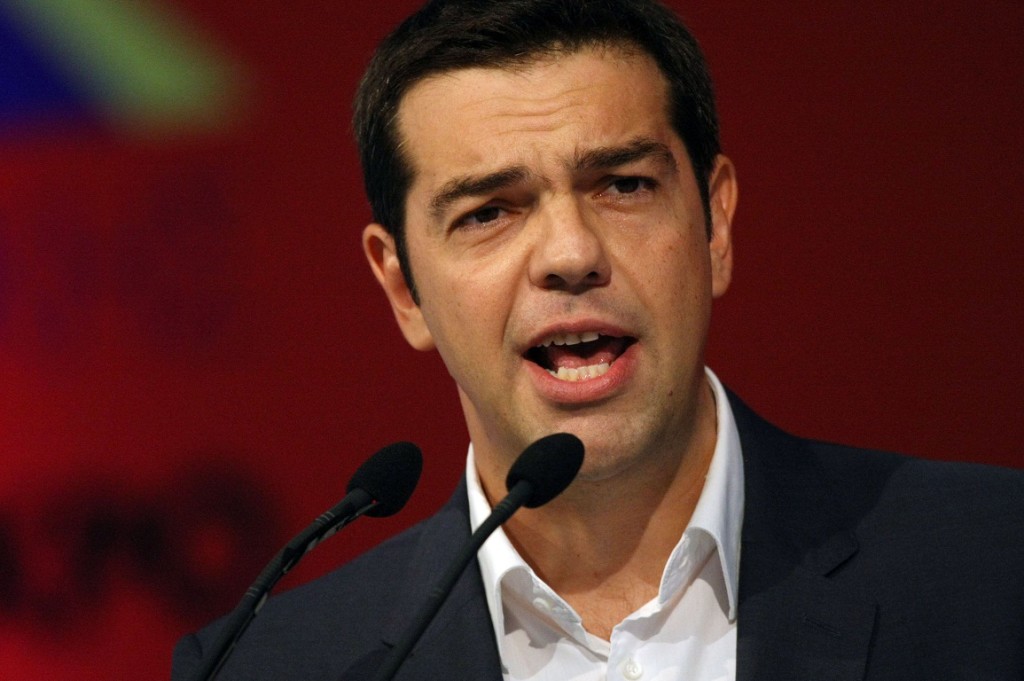
ATHENS, Greece – Greece’s president on Friday asked opposition leaders to try to form a new government, a day after Prime Minister Alexis Tsipras resigned and called an early election next month to deal with a governing party rebellion over Greece’s third bailout deal.
But the opposition has little chance of uniting and forming a government so quickly, meaning that after more than five years of a worsening financial crisis, Greece is headed for its fifth national election in six years. Although Tsipras is widely tipped to win the election again, if he fails to secure an outright majority he would have to seek a complex coalition that could hamper his ability to govern.
Hardline lawmakers in Tsipras’ radical left Syriza party announced Friday they were splitting from him and the party and forming their own movement, which becomes the third largest group in Parliament.
Outgoing government officials say the likeliest election date is Sept. 20, just eight months after Tsipras’ election on promises to fight creditor-demanded spending cuts and tax hikes, terms he later agreed to in order to secure Greece a third bailout as its economy was on the brink of collapse.
President Prokopis Pavlopoulos met conservative New Democracy party head Evangelos Meimarakis on Friday and asked him to try to form a government. Meimarakis has three days to seek coalition partners before having to return the mandate, which would then go to the third largest party – the new radical group that left Syriza. Those 25 lawmakers, who will be called Popular Unity, are led by former energy minister Panagiotis Lafazanis.
Announcing his resignation in a televised address late Thursday, Tsipras said he secured the best deal possible when he agreed to a three-year, 86 billion euro ($95 billion) bailout from other eurozone countries to save Greece from a disastrous exit from the shared euro currency.
But the deal came with strict terms for more belt-tightening.
Tsipras’ reversal in accepting the demands by creditors led to outrage among Syriza hardliners. About one in four Syriza lawmakers refused to back the bailout’s ratification in Parliament last week, which was only approved with backing from opposition parties.
Greece’s European creditors did not appear dismayed by Tsipras’ move, which was widely expected. But Moody’s credit rating agency warned the snap election “potentially, puts future (rescue loan) disbursements at risk.”
The political uncertainty is taking its toll on Greece’s stock market, with the Athens Stock Exchange down 1.6 percent shortly after opening Friday, after closing 3.5 percent down Thursday on election speculation.
Tsipras had delayed a decision on whether to call a new election until after Greece received its first installment from the new bailout and made a debt repayment to the European Central Bank; it did both Thursday.
“Now that this difficult cycle has ended… I feel the deep moral and political obligation to set before your judgment everything I have done, both right and wrong, the achievements and the omissions,” he said.
Tsipras insists he had to accept the unpalatable bailout terms to keep Greece in the euro, the EU’s common currency. He is betting on a stronger mandate if polls are held before voters feel the impact of the new steep tax hikes and spending cuts.
He acknowledged Thursday the bailout deal was not what his government had wanted.
“I wish to be fully frank with you. We did not achieve the agreement that we were hoping for before the January elections,” he said. “But… (the agreement) was the best anyone could have achieved. We are obliged to observe this agreement, but at the same time we will do our utmost to minimize its negative consequences.”
Greek banking is still restricted under capital controls imposed in late June to stem a bank run. There are weekly limits on cash withdrawals and Greeks can only transfer up to 500 euros ($563) abroad per month. Companies have faced problems paying suppliers abroad, with all international payments requiring a laborious approval process.
Some analysts took the early election news as an indication that Greece would struggle to implement the terms of its latest bailout.
Teneo intelligence analyst Wolfango Piccoli said while Tsipras’ gamble could pay off politically, it probably will delay the first review of the new bailout program because “the caretaker government will not be able to implement any meaningful policy measures.”